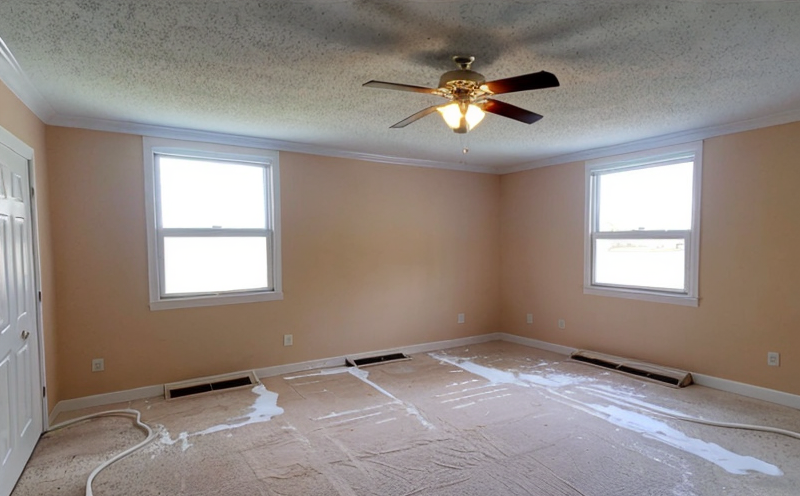ASTM E2584 Infrared Thermography Testing
The ASTM E2584 standard outlines a method for using infrared thermography to evaluate the thermal properties of materials used in additive manufacturing (AM) and 3D printing processes. This testing service is crucial for ensuring the quality, reliability, and performance of AM parts across various sectors including aerospace, automotive, and medical industries.
Thermal property testing via ASTM E2584 plays a pivotal role in identifying any anomalies or inconsistencies within the material's thermal behavior that might affect its integrity. This method provides insights into how materials respond to heat during critical stages of AM such as heating, cooling, and solidification processes. By understanding these properties, manufacturers can optimize process parameters leading to higher quality products.
The testing involves subjecting a specimen to controlled heating via infrared radiation, then measuring the temperature distribution across its surface using specialized cameras and software tools designed for this purpose. The data collected is analyzed according to ASTM E2584 guidelines to determine if the material meets specified thermal property criteria relevant to additive manufacturing applications.
This service supports compliance with international standards like ISO/ASTM 51903-1:2017, which provides a framework for qualification of AM parts. It also helps meet regulatory requirements set forth by agencies such as FAA (Federal Aviation Administration), EASA (European Union Aviation Safety Agency), and FDA (Food and Drug Administration).
The process begins with thorough preparation of the sample following industry best practices outlined in ASTM E2584, ensuring accurate measurements are possible. Afterward, precise calibration of equipment ensures reliable results. During testing, multiple scans capture thermal signatures from different angles to provide comprehensive analysis.
Post-testing, detailed reports highlighting key findings are generated based on the data collected. These reports serve as critical documentation for quality assurance processes and form part of broader compliance packages required by regulatory bodies worldwide.
Industry Applications
| Application Area | Description |
|---|---|
| Aerospace | Ensures safety and reliability of parts used in aircraft engines and structures. |
| Automotive | Maintains performance standards for components like engine blocks and exhaust systems. |
| Medical Devices | Guarantees biocompatibility and functionality of implants and prosthetics. |
The ASTM E2584 testing method is widely used across industries where precision and quality are paramount. Its ability to non-invasively assess thermal properties makes it particularly valuable in fields where traditional destructive testing methods would be impractical or impossible.
Customer Impact and Satisfaction
- Enhanced product quality through early identification of defects.
- Increased confidence in meeting regulatory requirements.
- Facilitated troubleshooting during development phases.
- Potential cost savings by avoiding rework or failure post-production.
Clients who utilize ASTM E2584 infrared thermography testing benefit from more efficient manufacturing processes and improved product performance. This service helps businesses maintain a competitive edge in their respective markets while adhering to strict quality control protocols.
International Acceptance and Recognition
The ASTM E2584 standard enjoys broad international recognition, especially within the AM sector. It is adopted by numerous countries including the United States, Europe, Asia-Pacific regions, and beyond. Compliance with this standard enhances market access opportunities for manufacturers looking to export their products globally.
Recognized institutions such as ASME (American Society of Mechanical Engineers) also reference ASTM E2584 in their guidelines for AM part qualification, further cementing its status as an authoritative testing method within the industry. The widespread acceptance underscores the importance placed on thermal property evaluation during additive manufacturing processes worldwide.





